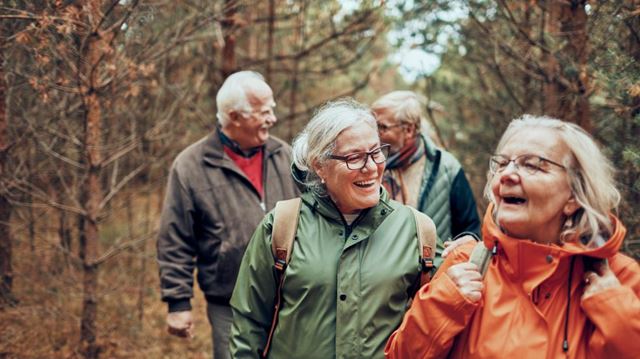
Dr Norman Lazarus’s illustrious academic career is not just impressive, it also gives him unique insight into the process of getting older and how it can be approached intelligently and mindfully. We spoke with Norman about his book The Lazarus Strategy: How to Age Well and Wisely to learn more about aging with dignity, retaining independence and living in comfort
As Professor at the Centre for Human and Applied Physiological Sciences at King’s College London, Dr Norman Lazarus is an expert on the physiology of healthy human ageing. And if that isn’t enough to convince you that his advice is worth heeding, the fact that he represents living proof that, well into your 80s, it’s possible to lead an active and medication-free lifestyle, should be.
Still frequently walking and cycling long distances, Dr. Lazarus shows no signs of slowing down even at 86 years of age, and he credits much of that energy and wherewithal to the strategies he outlines in his book. Partly a loose set of guidelines and partly a public declaration about the philosophy of aging The Lazarus Strategy: How to Age Well and Wisely is a fascinating read, backed by solid science. And it’s not just an intriguing proposition for those approaching their twilight years, but also for anyone with broad interest in healthy living and wellbeing. We sat down with Norman to ask a few questions about his life, his book and what his top tips are for leading a healthier life in old age. Read on for what we found out…
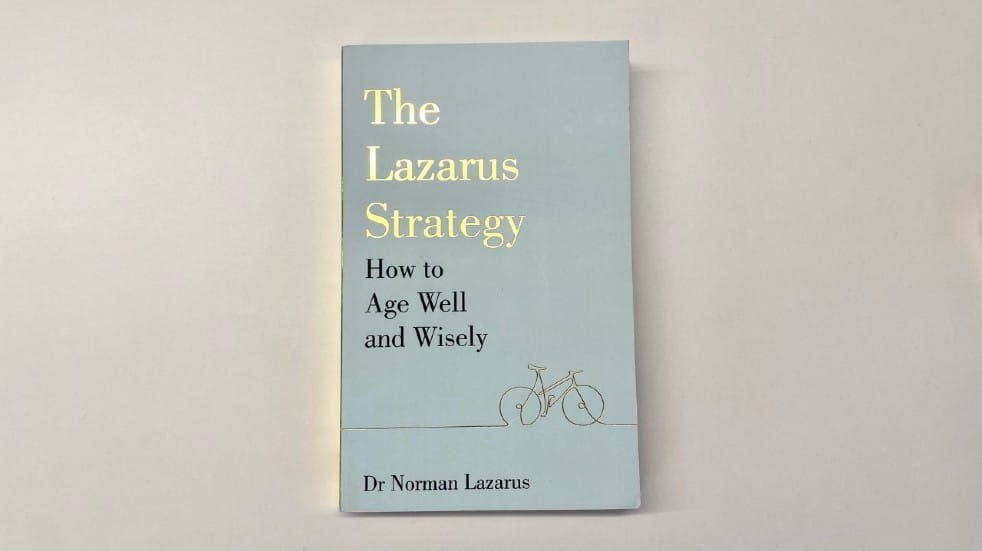
Do you really believe it’s possible for anyone to turn around their health and fitness at any time in their life?
‘Yes, but I’d just like quantify that a little bit first. Obviously, there are lots of diseases which can affect us as humans, some of them are genetic and we have no control over them, others are behaviour related and depend on how we conduct ourselves as adults. There is no doubt that anyone can turn their life around, it’s simply a matter of changing behaviours and consequently altering the course of these diseases. Of course, if you already have a disease related to behaviour, then it is more difficult, because you’re working against that disease, but even under adverse conditions, you can still begin to ameliorate many conditions and improve your health in general.
Speaking hypothetically, let’s imagine a person who has done little to exercise or manage their diet, they’ve reached the age of 60, and they decide that now is the time they would like to make behavioural changes to improve their wellbeing, where might that person begin? Well, really there are three key factors for influencing how we age:
1. Physical activity
2. Diet
3. Mental wellbeing
Let’s consider each of these factors individually and the patterns of behaviour around them that we might have already adopted.’
Physical activity and exercise
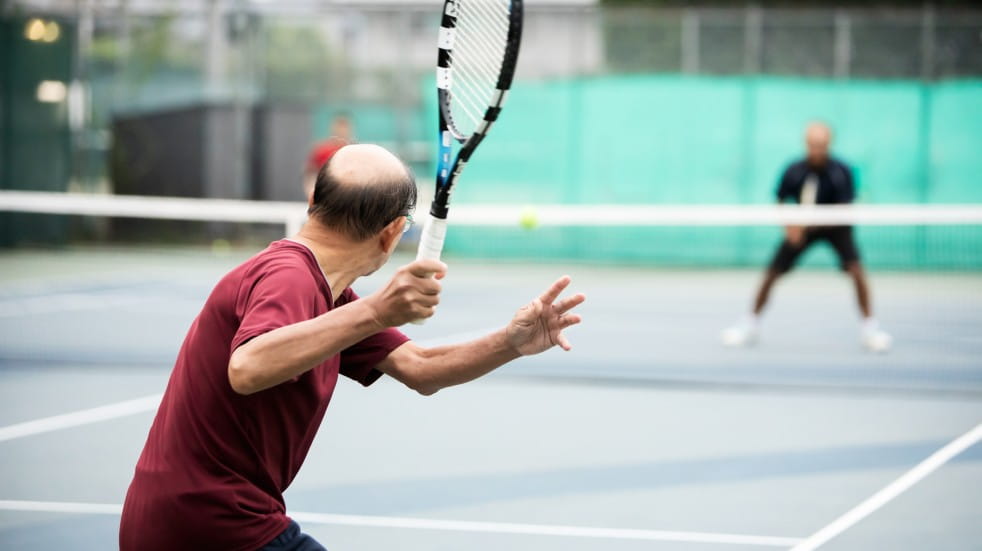
‘The first thing you should say to yourself is, am I exercising? If the answer’s no, you’re missing one of the crucial necessities that humans commonly neglect when it comes to health. The truth is exercise is what directed the human species to evolve and survive in the first place. If you couldn’t chase your prey you wouldn’t survive, it’s as simple as that. And our whole physiology in terms of evolution is designed to chase, this means regular increases in heart-rate are vital to overall health.
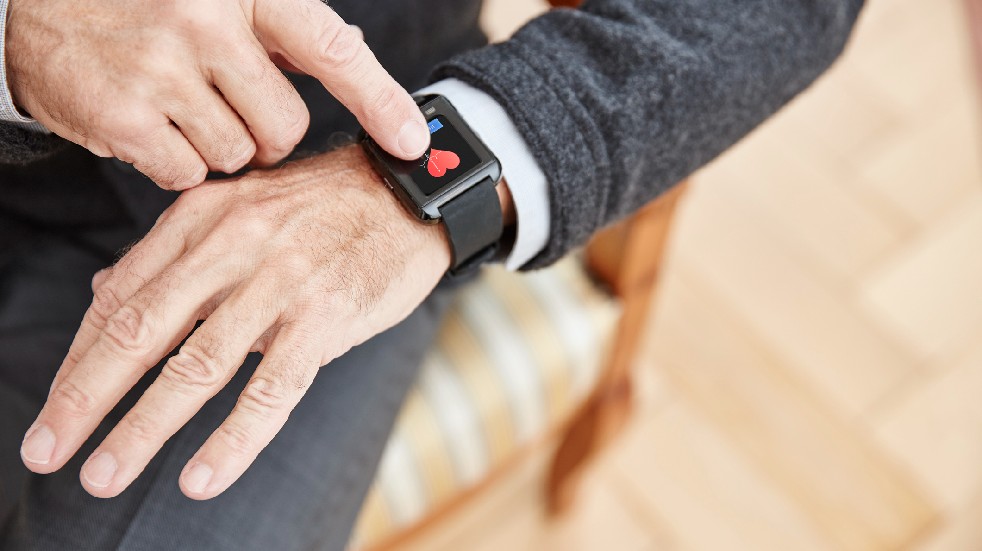
When it comes to exercise it’s quite simple, what you ought to be focused on is frequently increasing your heart rate from pumping six litres of blood a minute, (which is what you’re doing when sitting down at rest) to 20 litres a minute (closer to your natural heart rate when cycling or running). Once you’re doing that once or twice a week, you’re on the right track. And if you find yourself giving up and considering driving instead of cycling or walking, ask yourself the question: what is the evolutionary advantage to owning a car? Because the answer is definitely not survival!’
Diet and eating
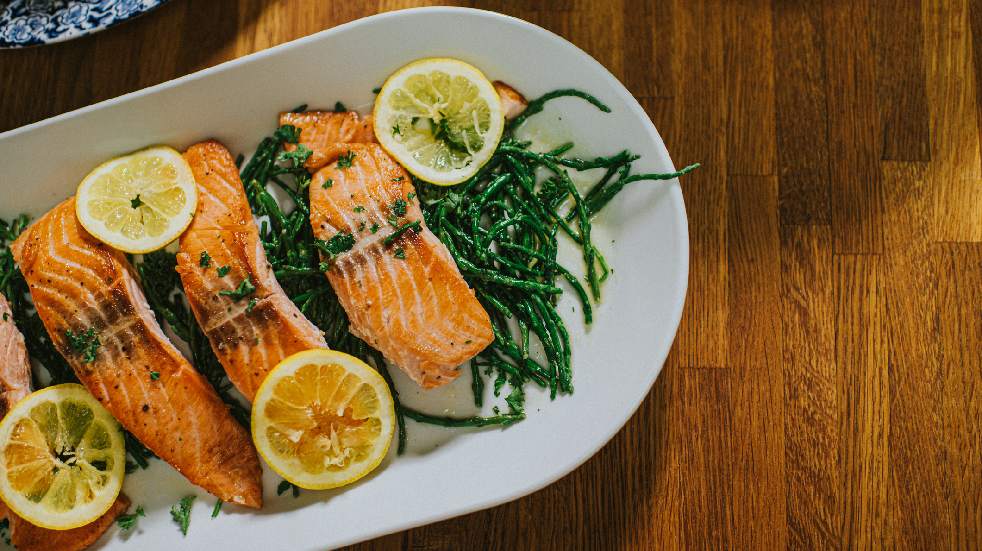
‘Eating on the other hand, is slightly more difficult because the advice we get about diet is so mixed, and consumption of food is ingrained in our culture too. If you walk down the street, people are eating, if you invite somebody to your house, you will likely offer them something to eat, if you do anything or go anywhere, there’s food involved, and the message we’re constantly being sent is, you must eat. To be sociable to be integrated into society, and that message is totally wrong.
Firstly, of course you ought to be eating the correct foods to stay fit and healthy. Then the next step is to ask yourself, are you currently at a healthy weight and body mass? If not, then the simplest piece of advice I can offer, is to stop eating so much. There are many books out there that go into great detail about precisely what you should and should not eat, but to keep it simple, a good rule of thumb is to eat less.

That means for example, when preparing dinner, say to yourself, let’s just make a little bit less of everything than we were before. Then a month or two down the line you might want to begin looking at your nutrient intake, but to start with, the best thing you can do (preferably with the support of friends and family) is to begin to eat less, changing your habits in a healthy way. Which leads nicely on to the third part of the trinity of living healthily: mental wellbeing.’
Mental wellbeing
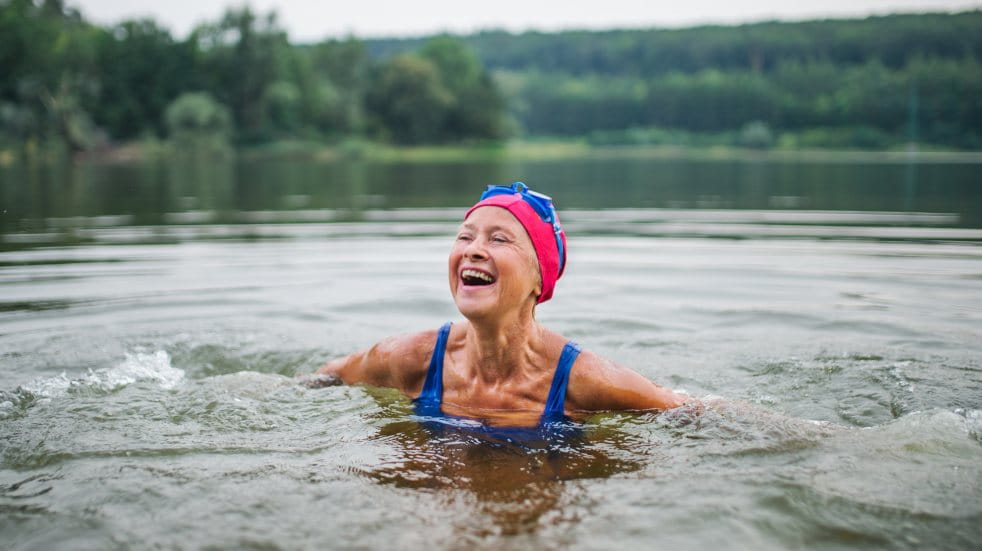
‘Perhaps even more difficult to manage than diet, is mental wellbeing, because the forces that impact this are even more complex and less tangible than what we eat. They depend upon that room you are sitting in, where your house is, your surroundings and your job (to name just a few factors). They depend upon all the things we have the least amount of control over. And lockdown illustrates this point well; many people who might have been fine before the pandemic found their whole mental state challenged by being locked up in a little room for months on end.
So, what can we do? If we have met our needs regarding the first two points (food and exercise), then our bodies should already be as fit as possible, providing a good basis for meeting our mental wellbeing needs. The key advantage to having a healthy exercise regime and diet is that you can take your body to places you might not have been able to in the past, whether that’s going on a lengthy hike in the Scottish Highlands, or simply taking a stroll around your local area. The impact getting outdoors can have on your mental health is proven.
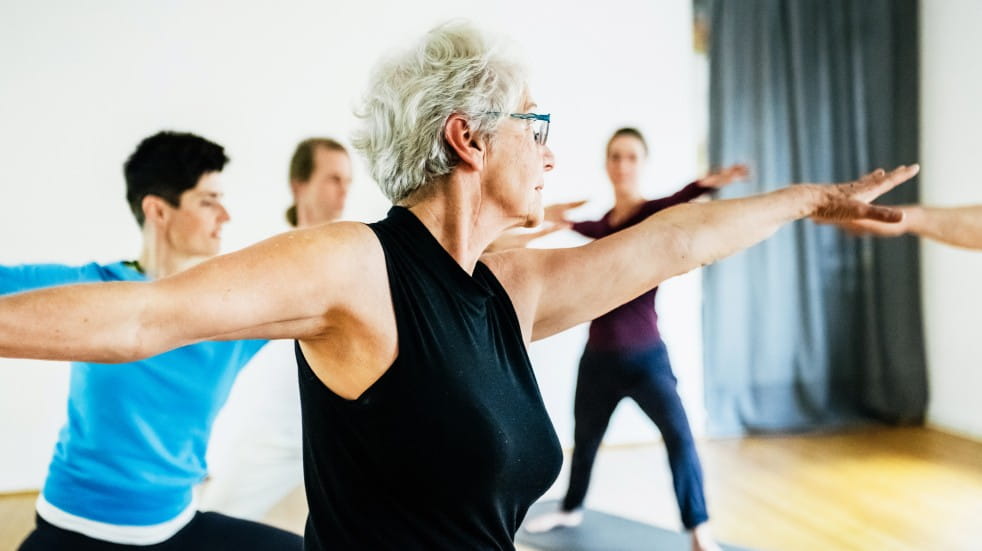
It’s not a catch-all solution by any means but changing your surroundings will help more than you think when it comes to improving your mental state. Will taking a walk every day and eating more leafy greens cease all mental health issues? The answer is no. But the probability of improving your situation increases significantly. The key takeaway here is that you are in control of more than you realise when it comes to your mental health and treating yourself well is an excellent first step to improving that at large.’
Some people lose mobility as they age, what advice would you give to those who might struggle meeting their exercise needs?
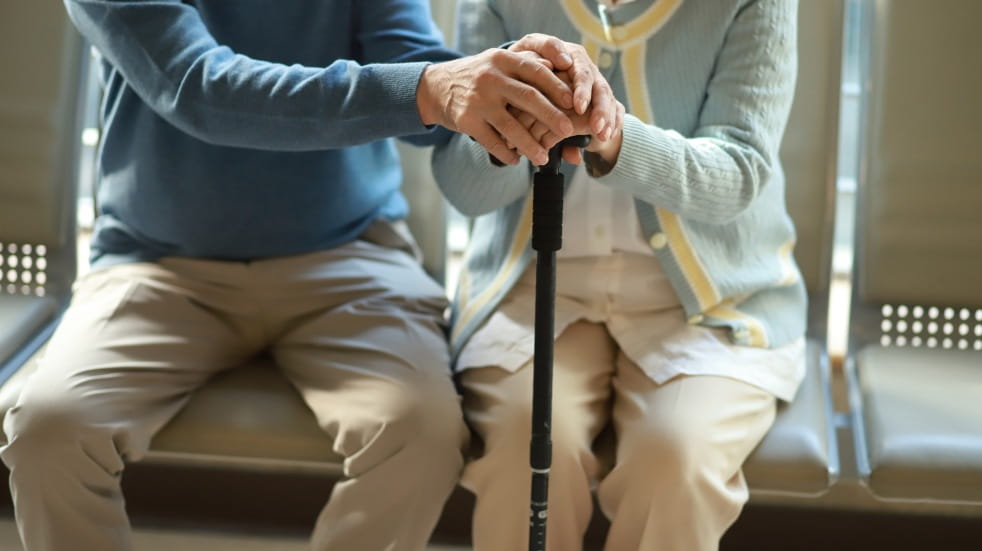
‘The primary issue, when it comes to many people with reduced mobility is that, somewhere along the line exercise has been removed from their behaviour. I keep saying this, and it’s something that I can’t overstate the importance of (in fact, I wish I could scream it from the rooftops), exercise is integral to us as a species and the removal of exercise from our lives can be a real disaster. The truth is, once you reach the upper 80s or 90s, time is not on your side, but that doesn’t mean there aren’t things you can do to improve your mobility and lifestyle through careful exercise.
Start with the simple things, you need to be able to stand up, without putting your hands on the chair, then, if that’s achievable, start trying to balance a little bit, standing on one leg for example. Then consider ways to increase muscle strength in the arms with small exercises to begin with, just twisting a towel in your hands is a great way to build strength back up. Once you’ve got the basics down, it’s simply a matter of pushing yourself to do more each time you exercise, and slowly your muscles will begin to respond. All these activities aim to reduce your risk of falling, which can be a significant cause of impairment to mobility in old age.
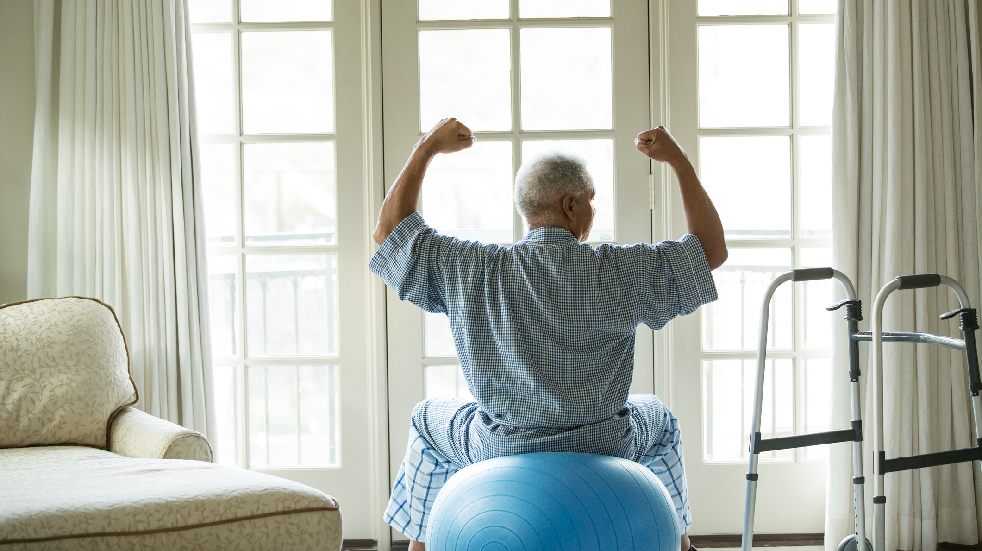
Avoiding falls is an essential part of taking care of yourself; being stuck in bed is one of the worst things that can happen to you, because it immediately impacts your ability to move around and your ability to recover quickly. Oftentimes, going into hospital can represent the start of a physical decline, since it can result in being bedbound for a long period. In my view, movement, even when you are unwell, is essential to a long and healthy life. This is backed by medicine in several countries too, for example in Taiwan every single ward has a little facility where people are exercised during their illness to ensure mobility is not lost during their stay.’
What one key piece of advice would you say is most important to aging well?
‘I think, above all else, it’s important to remember how much of your life is within your own control. It’s just a matter of finding the motivation and desire to change it for the better.’
Learn more about how to age well and wisely…
Our chat with Dr. Norman Lazarus barely scratches the surface of what’s covered at length in his book, The Lazarus Strategy: How to Age Well and Wisely. If you’re interested in learning more about the science behind aging find your copy of the book here.





